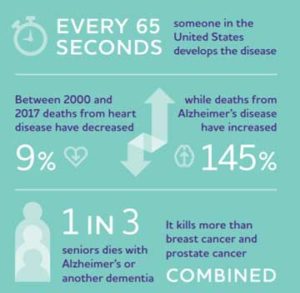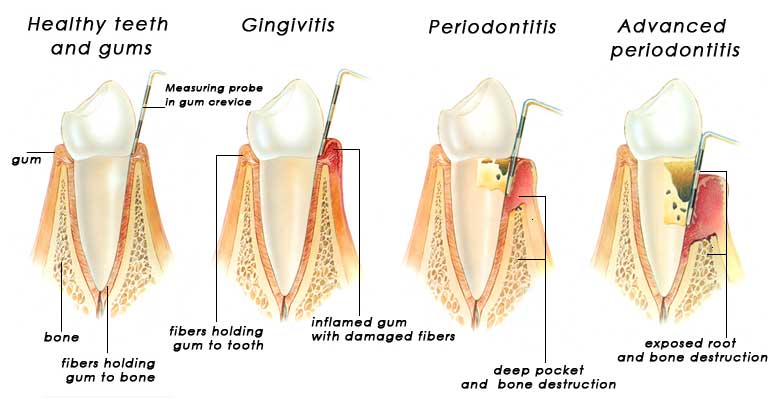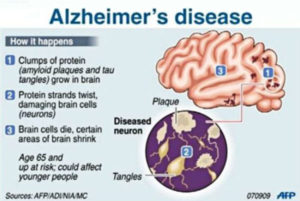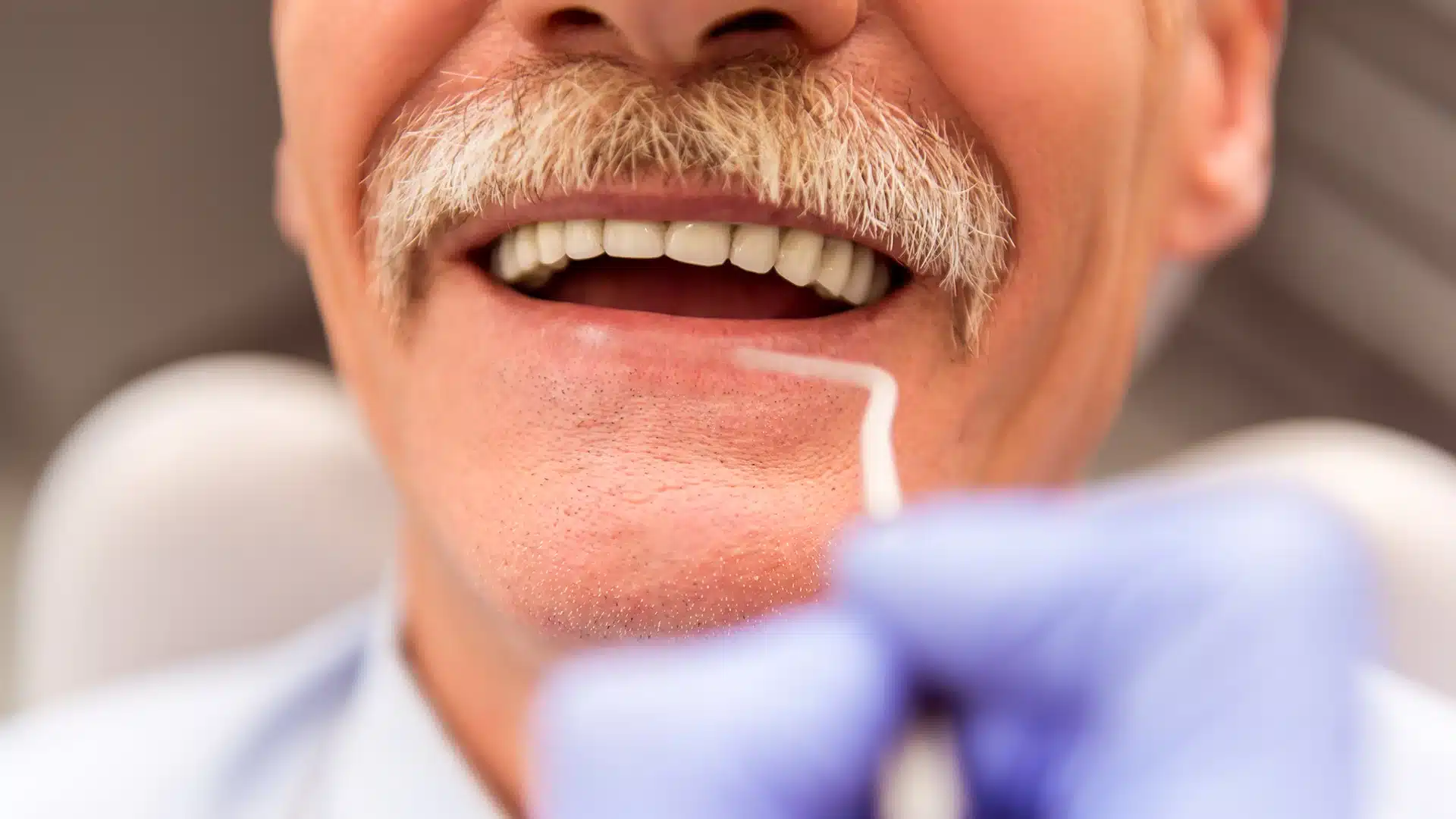For years we have heard about bacteria gut flora (or gut microbiota) and the benefits of having the correct balance of gut flora to your overall health. If the population of bacteria becomes out of balance, the body is negatively impacted. You’ve seen the Activia probiotic yogurt commercials and Benefiber’s prebiotic gut health commercials, right?!
It seems prebiotics and probiotics are being talked about everywhere from supplements to food sources. The commercialism of such things should always be taken with a grain of salt because a one-size-fits-all isn’t always the best approach. The best, everyday approach is to strive to eat a healthy, well-balanced diet (and less processed foods).
Why am I talking about gut health here on my dental blog? Well, because the latest research has shown that having the wrong balance of bacteria in your mouth could have a negative impact on your brain health. A link between Alzheimer’s disease and periodontal disease is being studied by pharmaceutical companies, appearing in Forbes articles, and being referenced by Dr. Lake in her most recent post.

Alzheimer’s Disease
It is estimated that nearly 6 million Americans are living with Alzheimer’s with an estimated 47 million people worldwide.
It is a progressive brain disorder that slowly destroys a person’s cognitive abilities. While memory loss is what you think of immediately, it also kills. In fact, it is the sixth-leading cause of death in the US.
In fact, 1 in 3 seniors dies with Alzheimer’s or another dementia and the disease kills more than breast cancer and prostate cancer combined.
Medications and management strategies exist to help patients with Alzheimer’s and their care givers, but there is no cure. It can last for years as the condition unfolds.
Periodontitis

Dr. Lake wrote all about periodontal disease last month, comparing untreated periodontitis to a ninja as they’re both silent but deadly given the list of systemic conditions that have already been linked to periodontal disease and, well, ninjas.
The Link Between Gum Disease & Alzheimer’s

Researchers discovering links between the toxins produced by bacteria associated with periodontal disease determined they can travel throughout the body.
These toxins have been connected to the development of rheumatoid arthritis, aspiration pneumonia, and most recently Alzheimer’s disease. This discovery reinforces the synergic relationship between oral health and overall wellness.
This connection between periodontal disease and Alzheimer’s disease was discovered by studying brain samples from people with Alzheimer’s and used mice to show that the bacterium can migrate from gum tissue to the brain. The bacterium, Porphyromonas gingivails, is involved in the breakdown of periodontal tissue associated with gum disease.

In the research paper, the scientists compared tissue samples from deceased people with and without Alzheimer’s disease. The samples were from individuals who were roughly the same age when they died. They found that brain tissue from Alzheimer’s patients had higher concentrations of P. gingivalis. This bacterium produces the endotoxin known as gingipains.
Now that the research has linked diseases to the toxin known as gingipains, they are looking at how to block the effect of this chemical on other tissues in the body. A new startup company called Cortexyme (www.cortexyme.com) is developing a drug that blocks gingipains. Cortexyme’s experimental drug, known as COR388, is currently in phase 1 clinical trails for Alzheimer’s disease. The researchers also report links on Porphyromonas gingivails’s role in the autoimmune disease rheumatoid arthritis, as well as aspiration pneumonia, a lung infection caused by inhaling food or saliva.

All humans have P. gingivalis in the mouth; it is when the bacterium grows in population that the body’s immune response creates inflammation. This inflammation causes redness, swelling, bleeding and destruction of the patient’s jaw bone. This is what dentists call periodontal disease and needs to be treated professionally.
The best way to prevent P. gingivalis from growing out of control is by proper oral hygiene. The goal of home oral care is to lower the bacteria count in the mouth by removing tooth plaque. Studies show a significant benefit of visiting a dental hygienist at least once a year. As risk factors increase (history of dental decay, smoking habits, and dry mouth in older people) the recommended frequency of professional cleanings increases.
It is important to brush twice a day, floss once a day and see your dentist regularly to help ward off any oral health issues AND for good, overall health.
Interested in your periodontal health? Come see us!

References
- Porphyromonas gingivalis in Alzheimer’s disease brains: Evidence for disease causation and treatment with small-molecule inhibitors
- Gingipain-dependent interactions with the host are important for survival of Porphyromonas gingivalis
- Alzheimer’s Disease Fact Sheet
- What Happens to the Brain in Alzheimer’s Disease?
- What is Alzheimer’s Disease? | CDC
- Alzheimer’s Disease Facts and Figures, an annual report
- Porphyromonas gingivalis in Alzheimer’s disease brains: Evidence for disease causation and treatment with small-molecule inhibitors
- Gingipain-dependent interactions with the host are important for survival of Porphyromonas gingivalis
- Alzheimer’s Disease Fact Sheet
- What Happens to the Brain in Alzheimer’s Disease?
- What is Alzheimer’s Disease? | CDC
- Alzheimer’s Disease Facts and Figures, an annual report




